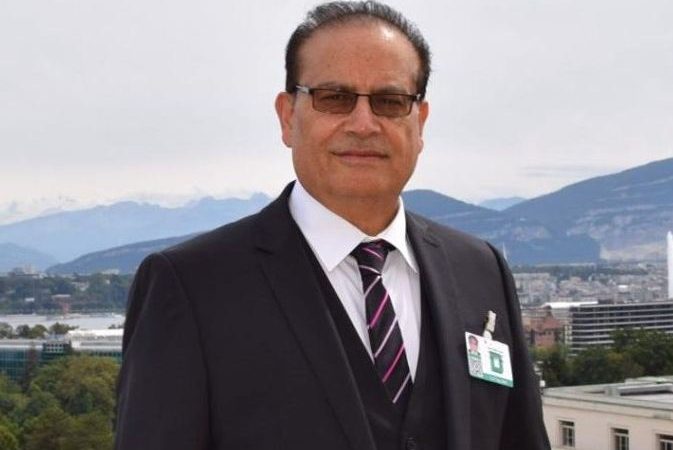“Will Israel Comply with the UNSC’s Ceasefire Resolution for Gaza?”

By: Qamar Bashir
In a remarkable turn of events, Israel found itself facing unexpected diplomatic pressure as the United States chose not to exercise its veto power against a ceasefire resolution championed by ten nations led by Mozambique. The resolution garnered the support of 14 members of the UN Security Council, with the US abstaining. The resolution called for an immediate ceasefire during a sacred period, with the ultimate aim of achieving a permanent and sustainable cessation of hostilities. Furthermore, it demanded the immediate and unconditional release of all hostages, underscoring the necessity of humanitarian access to address their medical and other urgent needs.
This development signaled a significant shift in the international community’s stance on the conflict, highlighting a growing consensus towards prioritizing peace and humanitarian considerations in resolving the ongoing crisis.
The shift in the US stance towards the ceasefire resolution primarily stems from multiple factors. Firstly, the enduring and relentless nature of Israel’s military campaign in Gaza,
Secondly, with impending elections on the horizon, the US President’s concerns over potentially alienating Muslim voters, as well as support for a ceasefire from diverse religious, racial, and ethnic groups, influenced the decision-making process in Washington. The mounting frustration within US political circles at the Israeli Prime Minister’s unwavering stance on military actions, particularly the planned Rafah attack, further compounded the situation.
Moreover, Israel’s ongoing massacre, hindrance of humanitarian aid deliveries exacerbated tensions and raised humanitarian concerns globally, prompting the US to reassess its approach.
Israel incessantly and unlawfully pounding Gaza, hitting schools and hospitals and reducing large parts of neighborhoods to rubble. It unlawfully used white phosphorus in densely populated areas. Forced evacuation of all people from northern Gaza and displacing 1.9 million people. Unlawful killing of over 30,228 Palestinians most of them civilians, including 25000 women and children stemming from Israel’s regular use of excessive lethal force and extrajudicial executions.
The sweeping unlawful collective punishment by imposing restrictions on the movement of people and goods deprived the 2.2 million Palestinians in Gaza of their right to freedom of movement and opportunities to better their lives; severely limited their access to electricity, health care, and water; and devastated the economy. Israeli authorities also held 2,873 Palestinians in administrative detention, without charge or trial based on secret information.
More than 46,000 housing units have been destroyed and 234,000 others damaged, accounting for 60 percent of the housing stock in Gaza. At least 342 schools have been damaged, 187 “attacks on health care” were carried out, damaging 24 hospitals.
These atrocities are in utter violation of the established principles of Geneva Conventions designed to ensure the protection and dignity of all individuals affected by armed conflict. Civilians, regardless of age, including children and the elderly, are entitled to special care and must be shielded from deliberate harm. Hospitals and medical personnel are protected. Civilian property such as households, places of worship, and industrial facilities are safeguarded from deliberate targeting. It prohibits collective punishment and emphasizes individual accountability for actions taken during conflict.
The convergence of these factors ultimately compelled the United States to abstain from vetoing the ceasefire resolution, marking a significant departure from its previous staunch support for Israel’s actions.
Israel’s response to international appeals, UN resolutions, and pressure from the US reflects a deep-seated determination to pursue its own strategic objectives in the Israel-Palestine conflict. Despite widespread calls for moderation and humanitarian considerations, Israel has remained steadfast in its military actions against Palestinians in Gaza.
It even started hurling accusations at the US for US persistent advocacy for a two state solution and allowing humanitarian aid to enter into Gaza and warned that with or without the support of US, Israel would continue warfare and annexation of Palestinian territory, underscore Israel’s uncompromising stance on key issues such as the two-state solution and the provision of humanitarian aid.
By canceling a planned trip to Washington and rebuking the US for its perceived interference, Israel demonstrates its frustration with what it views as insufficient support for its military operations and broader objectives in the region.
Big Question is what is next after the passing of the resolution if Israel refuses to abide by the resolution.
This concern was put to writing by the UN secretary general, António Guterres, who in his tweet said quote, “The Security Council just approved a long-awaited resolution on Gaza, demanding an immediate ceasefire, and the immediate and unconditional release of all hostages. This resolution must be implemented. Failure would be unforgivable”.
The UNSC has many arsenals in its armory which could be used to implement the UNSC resolution, if any of the party fails to abide by it as when the UNSC issues a resolution mandating a ceasefire between two countries, it signifies a collective international effort to restore peace and stability in the region.
However, if one of the involved nations refuses to adhere to the provisions outlined in the resolution, a cascade of diplomatic, economic, and potentially military consequences may ensue.
Initially, diplomatic pressure and condemnation from the UNSC and other member states could intensify, urging the non-compliant country to honor the ceasefire agreement.
Concurrently, economic sanctions may be imposed, targeting vital sectors of the non-compliant nation’s economy to compel compliance. This combination of diplomatic and economic measures aims to exert significant pressure on the non-compliant nation and encourage a return to peaceful negotiations and adherence to the UNSC resolution.
In more severe cases where the refusal to comply persists, the international community may escalate its response. This could involve the authorization of military intervention by the UNSC to enforce the ceasefire resolution and restore order.
Additionally, the non-compliant country may face further isolation on the international stage, with repercussions extending to legal consequences for breaches of international law.
However, unfortunately, numerous resolutions passed by the United Nations Security Council (UNSC) including those passed on Indian Illegally Occupied Jammu and Kashmir have remained unimplemented for various reasons. These include the lack of enforcement mechanisms, political obstacles stemming from opposing interests among member states, resource constraints, challenges in securing cooperation among multiple parties, and the evolving nature of conflicts and geopolitical dynamics. Additionally, resolutions may face difficulties in implementation when they involve non-state actors or address issues beyond the control of the UNSC.
Ultimately, the effectiveness of UNSC resolutions hinges on factors such as political will, international cooperation, enforcement mechanisms, and the evolving circumstances surrounding conflicts and crises. When these factors align, resolutions are more likely to be successfully implemented, but when they are lacking, resolutions may remain unimplemented or only partially implemented.
The upcoming test will gauge the resilience and determination of the international community in confronting the actions of a single, albeit influential, nation: Israel. Whether the collective efforts of the international community will prevail over the policies of Israel remains to be seen, with time serving as the ultimate arbiter of this contentious struggle.
By: Qamar Bashir
Press Secretary to the President(Rtd)
Former Press Minister at Embassy of Pakistan to France
Former MD, SRBC
Related News

The Future of the World
Dr. Muhammad Akram Zaheer The world stands at a difficult crossroads. Economic growth, once takenRead More

Vigilance Under the Banner of Peace
by Muhammad Mohsin Iqbal When Pakistan, alongside several Islamic nations, affixed its signature to theRead More


Comments are Closed